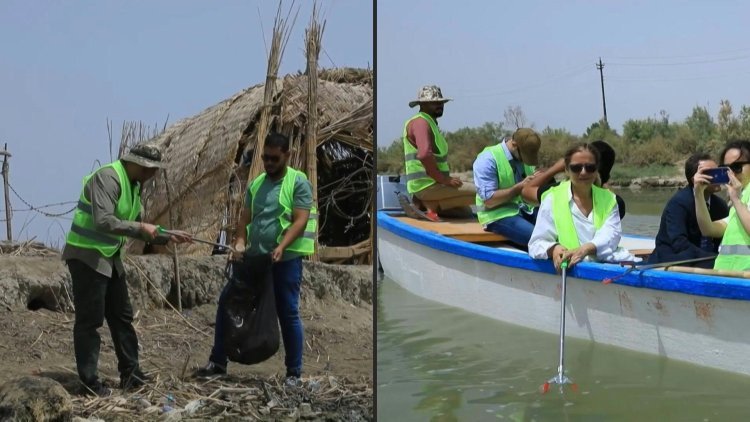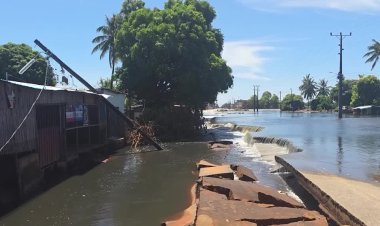Trawling Iraq's threatened marshes to collect plastic waste

Iraq's vast swamplands are the reputed home of the biblical Garden of Eden, but the waterways are drying out and becoming so clogged with waste their very existence is at risk, activists warn.
"For 6,000 or 7,000 years the inhabitants have protected the marshes," said Raad al-Assadi, director of Chibayish Organisation for Ecotourism, who this week began work on a boat to try to clear some of the worst areas of trash.
"But we have reached a stage where the marshes are threatened with extinction."
The swamps, nestled between the Tigris and Euphrates rivers, are one of the world's largest inland deltas.
The wetlands barely survived the wrath of dictator Saddam Hussein, who ordered they be drained in 1991 as punishment for communities protecting insurgents and to hunt them down.
But after Saddam was toppled, Iraq pledged to preserve the ecosystem and provide functional services to the marshland communities, and they were inscribed as a UNESCO World Heritage site in 2016 both for their biodiversity and their ancient history.
Tourists have returned, but one of the main visible sources of pollution in the area are visitors who throw away their "plastic waste", said Assadi.
After decades of brutal war, Iraq lacks structures for the collection and disposal of waste, and 70 percent of its industrial waste is dumped directly into rivers or the sea, according to data compiled by the United Nations and academics.















